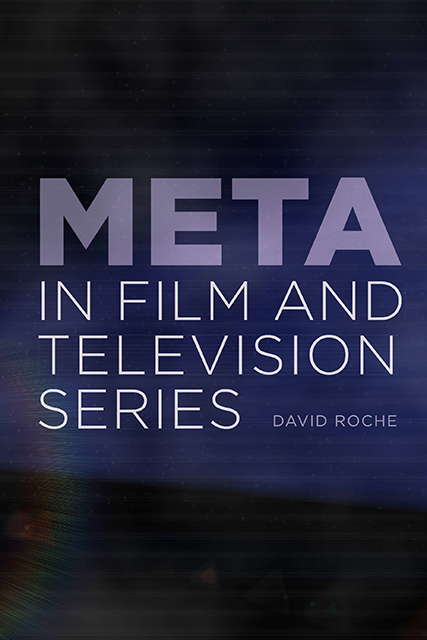Chapter 4 - Industry and Creation
Published online by Cambridge University Press: 26 October 2023
Summary
MOVIES ABOUT MAKING MOVIES
No doubt meta is at its most obvious in films and series that revolve around the film and television industry and depict the workings of its three branches (production, distribution, exhibition), such “thematization” qualifying as “overt diegetic metafiction” according to Hutcheon. Such films have existed since the silent era (The Evidence of the Film [Marson and Thanhouser, 1913], Mabel’s Dramatic Career [Sennett, 1913], A Film Johnnie [Nichols, 1914]) and have, accordingly, received sustained critical attention—from Patrick Donald Anderson (1976), Christopher Ames (1997), Marc Cerisuelo (2000) and, more recently, from Steven Cohan (2018) and Julien Achemchame (2021). All these scholars consider these “films about Hollywood and the movie industry” (Anderson), films-about-filmmaking (Stam), “movies about movies” (Ames), “metafilms” (Cerisuelo, Achemchame) or “backstudio pictures” (Cohan) as a full-fledged and primarily Hollywood genre. They also see it as eminently “self-referential,” “reflexive” or “self-reflexive.” The first section of this chapter thus draws on their ideas and expands beyond the US to offer an overview of the genre before moving on to the more implicit forms and concerns that may inhabit them, and leading us beyond the confines of the industry and into the domain of allegory.
The degree of aboutness—that is, the extent to which they are really about the industry—varies greatly from one work to another. Often their plots are less concerned with the role and structure of the industry than with problems such as jealousy (Shooting Stars [Asquith and Bramble, 1928]), alcoholism (In a Lonely Place [Ray, 1950]), psychopathic behavior (Peeping Tom), romantic relationships (Identificazione di una donna [Antonioni, 1982], Through the Olive Trees), dysfunctional families (Maps to the Stars [Cronenberg, 2014]), homosexuality in the face of censorship (Where the Truth Lies [Egoyan, 2005]) or genocide (Ararat [Egoyan, 2002]). The vast majority of films that do engage with the industry itself concentrate on filmmaking and production. Those that involve the third branch rarely explore the intricacies of exhibition but center on the experiences of specific viewers (see Chapter 5). An audiovisual fiction that privileges distribution has, to my knowledge, yet to see the day.
- Type
- Chapter
- Information
- Meta in Film and Television Series , pp. 61 - 91Publisher: Edinburgh University PressPrint publication year: 2022



